Three Universities with Exceptional Social Work Faculty
The National Association of Social Work Professions (NASW) describes the primary goal of careers in social services as enhancing the well-being of the most vulnerable and oppressed members of society. This is done by addressing both individuals and their environments. As Dr. Rachel Naomi Remen explains, being of service to others is “the work of the soul.”
Obtaining a masters degree in social work or welfare provides compassionate individuals interested in serving others a variety of professional opportunities. Master of Social Work (MSW) programs typically entail two years of full-time study within a generalist or specialized track. Students can choose from specializations in areas such as: adult health and wellness; children, youth, and families; or organizations and communities. Social work students develop leadership skills in the areas of service, social justice and social change, and evidence-informed and competency-based practice.
This list highlights 14 distinguished social work faculty members. Three schools, in particular, stand out for their accomplished faculty members in this discipline: the University of California, Berkeley, the University of Southern California, and Arizona State University.
These 14 social work professors have demonstrated expertise gained through years of professional field experience and academic scholarship. Their contributions consist of excellence in teaching, original research, an extensive record of published works, leadership in academic centers, departments and professional organizations, community engagement, and other achievements recognized through honors and awards.
The University of California, Berkeley – School of Social Welfare
From the founding of the Sierra Club in 1892 to the birth of biotechnology in the 1970s and the electronic publication of Mark Twain’s body of letters in the early 2000s, the University of California, Berkeley has been making history since its beginnings in 1868. True to its vision of contributing “even more than California’s gold to the glory and happiness of advancing generations,” nearly one-quarter of the current freshman class are first-generation college students.
On an international scale, the school counts more Peace Corps volunteers among its alumni than any other university in the country. With more than 40,000 undergraduate and graduate students and a student-faculty ratio of 18 to one, UC Berkeley is in a league of its own earning recognition as the number one “best public university” worldwide by U.S. News & World Report.

Dr. Anu Manchikanti Gómez is the director of the sexual health and reproductive equity (SHARE) program and an assistant professor in the School of Social Welfare. She teaches a yearlong research methods course in the MSW program and human sexuality.
Dr. Gómez’s research has focused on health equity for more than 15 years. Her area of expertise lies in the realm of reproduction and sexuality throughout the lifespan with particular attention to contraceptive use, HIV prevention, gender equity, transgender health, abortion, and violence against women and children. She is currently the co-principal investigator on SOLARS, studying the relationship between psychosocial stress and preterm birth in Hispanic/Latina and Black women in Fresno and Oakland, California. Dr. Gómez was honored with the Outstanding Young Professional Award from the Sexual and Reproductive Health Section of the American Public Health Organization and the RISE Leader Award from the Gender Equity Resource Center at UC Berkeley.
Dr. Gómez holds a master’s degree in health, population, and society from the London School of Economics and Political Science and a doctorate in maternal and child health from the University of North Carolina at Chapel Hill.
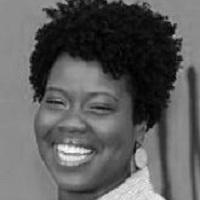
Dr. Erin M. Kerrison is an assistant professor with expertise in health and healthcare disparities; race, class, and gender; community, organizational and policy development; and behavioral health and prevention/intervention.
Among, Dr. Kerrison’s research interests are criminal justice organization and policy, trauma and crime, legal epidemiology, substance abuse treatment, and the privatization of healthcare and supervision in underserved communities. She is currently the co-investigator of the project entitled, “The Effects of Social Networks On Women’s Substance Use Disorder Recovery Outcome.”
Professor Kerrison teaches forensic social welfare and an introduction to social welfare research. She also is currently writing a book called Hustles and Hurdles: Law’s Impact on Desistance for Job-Seeking Former Prisoners, which analyzes the stories of former drug-involved prisoners through the lens of critical race and intersectional theories.
Dr. Kerrison holds a bachelor’s degree in sociology and philosophy from Haverford College, a master’s in criminology, law, and society from Villanova University, and a doctorate in criminology from the University of Delaware.

Dr. Kurt Organista is a leading expert on social work and the Latino community. He teaches social work practice with Latino populations, stress and coping, and social problems and psychopathology at UC Berkeley.
Dr. Organista’s research centers on race and ethnicity, social behavior, and HIV prevention. He is the author of the book HIV Prevention with Latinos: Theory, Research, and Practice—the first of its kind to deconstruct the social-ecological contexts of HIV risk within the Latino population. Dr. Organista was the principal investigator of an NIH/NIAAA supported project on HIV risk and prevention for migrant day laborers in the Bay area.
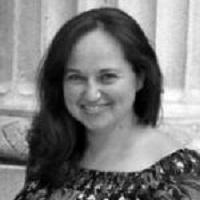
Dr. Valerie B. Shapiro is the director of the social welfare doctorate program, an associate professor, and the co-director of the Center for Prevention Research in Social Welfare. Dr. Shapiro is also an analyst for the Devereux Center for Resilient Children and the Social Development Research Group.
Dr. Shapiro’s research focuses on systems of care for children, families, and the elderly; community, organizational, and policy development; and behavioral health and prevention/intervention. She has been recognized with several honors, including the NIMH Child Intervention, Prevention, and Services Fellowship. She has also been recognized for teaching excellence, scholarly achievement, and role modeling with the Prytanean Faculty Prize (2014) and through participation in the prestigious UC Women’s Initiative for Leadership Pipeline Development (2018). She instructs the following courses: teaching in social welfare, foundations of multi-level practice, and group study in prevention research.
Dr. Shapiro has a bachelor’s degree in psychology from Colgate University, a master of social work from Bryn Mawr College, and a doctorate in social work from the University of Washington.
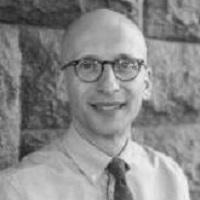
Dr. Paul R. Sterzing is an associate professor and the co-chair of the MSW program at UC Berkeley. Dr. Sterzing’s areas of expertise include behavioral health and prevention and intervention; race, class, and gender; and violence and victimization.
His research focuses on the polyvictimization of vulnerable adolescents, sexual orientation and gender identity microaggressions, and bullying involvement roles and peer rejection.
Dr. Sterzing teaches theories for multi-level practice and the seminar in social welfare research in the MSW program and the group study in sexual and gender minority youth doctoral research course. He was the principal investigator for a three-year study funded through the National Institute of Justice called SpeakOut, which examined over 40 forms of victimization of sexual and gender minority adolescents across different contexts and perpetrators. The study found that rates of polyvictimization of such individuals were almost double the national rate (40 vs. 20 percent). Dr. Sterzing is also co-director of the Center for Prevention Research in Social Welfare and an affiliate faculty member with the gender and women’s studies department.
Dr. Sterzing earned his bachelor’s degree in psychology and MSW from the University of Wisconsin–Madison and his doctorate at Washington University in St. Louis.
University of Southern California – Suzanne Dworak-Peck School of Social Work
The USC Suzanne Dworak-Peck School of Social Work is internationally renowned for its ability to complement rigorous academics with hands-on community building and leadership. The administration, faculty, and students aim to make the world more navigable for the most vulnerable among us, promoting social justice both locally and worldwide.
Notably, the school advocates for broad-based diversity, equity, and inclusion (DEI) through specific objectives both within its departments and campus-wide. Within the past few years, it has developed a required course (diversity, social justice, and cultural competence) for its MSW students; created a DEI Committee and leadership team; and built an organizational core to track progress on its initiatives.
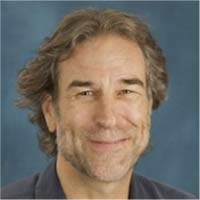
Dr. John Brekke is the Frances G. Larson professor of social work in the Department of Adult Mental Health and Wellness within USC’s Suzanne Dworak-Peck School of Social Work, where he has worked since 1984. He leads both research and clinical courses in the MSW program, as well as treatment outcome research within the PhD program. His areas of expertise include psychological health, aging, and grant writing, among others.
Before joining the USC faculty, he treated patients with mental illnesses and domestic abusers. In the past three decades, he has served as the principal investigator on five studies with funding from the National Institute of Mental Health (NIMH) and one supported by the Substance Abuse and Mental Health Services Administration. Through his work, he has advanced research in mental health rehabilitation and treatment for various disorders (including schizophrenia) through community-based services. His work has been published in several influential journals and he sits on the editorial board of Social Service Review, the Psychiatric Rehabilitation Journal, and Research on Social Work Practice.
Dr. Brekke earned his PhD from the University of Wisconsin–Madison and his MSW and his BA from the University of Hawaii.

Dr. Annalisa Enrile is a clinical professor of social work and vice chair of the Department of Social Change and Innovation at USC. Her research interests include sex trafficking, human rights, immigration policy, and migrant labor.
Dr. Enrile is active in several organizations and sits on the board of the Mariposa Center for Change, which helps women and children in communities of color. Notably, she was recognized among the “100 Most Influential Filipinas in the World” (FWN Global 100) for her work combatting violence against women and girls. She is squarely focused on social justice and change, having developed innovative methods (including a Filipino immersion program) to teach students about human rights violations and uniting theory to empirical experience.
Dr. Enrile earned her PhD, MSW, and BA from the University of California, Los Angeles.
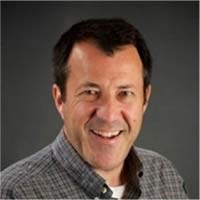
Samuel Mistrano is a clinical associate professor of social work in the Department of Social Change and Innovation at USC. His areas of interest and expertise include affordable workforce housing, policy practice, nonprofits and philanthropy, and innovation in communities, organizations, and businesses.
In addition to his role as chair of the School of Social Work’s policy sequence, he serves as the director of community immersions and leads the foundation-year policy practice course. He also was a senior facilities project manager for Los Angeles Unified School District (LAUSD), striving to secure affordable housing for employees on district-owned land. Before that, he worked as the director of Housing With Heart, a California organization offering case management, training, and other resources to over 5,000 lower-income residents of the state. He also held leadership roles within the Southern California Association of Non-Profit Housing, the Human Services Alliance, and the ACLU, among other influential organizations.
Mistrano holds his JD from the University of Minnesota and his BA from The Pennsylvania State University.
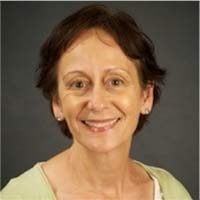
Dr. Elizabeth Phillips serves as the assistant dean of faculty development and is a clinical associate professor of social work, where she’s an expert in community mental health, healthy aging processes, motivational interviews, and living with illnesses, among other areas.
Dr. Phillips is certified in interpersonal psychotherapy and errorless learning, and she served as part of an NIMH-funded team studying illness management and recovery through various modalities, including problem-solving therapy and evidence-based interventions.
She earned her PhD and MSW from the University of Southern California, and her BA from California State University, Los Angeles.
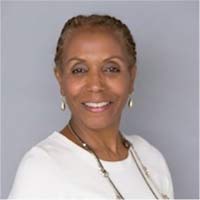
Dr. Renée Smith-Maddox is the associate dean of diversity, equity, and inclusion (DEI), as well as a clinical professor of social work within the Suzanne Dworak-Peck School of Social Work. She’s an expert in social innovation, corporate social responsibility, community organizing, policy evaluations, and race, gender, and class.
In addition to her teaching, Dr. Smith-Maddox serves as diversity liaison to the provost; chair of the provost’s diversity and inclusion council; and co-chair of the Campus Climate Committee. Across her roles, she strives to inspire students to be agents of social change and question the systems around them. Prior to joining the School of Social Work, she taught within USC’s Rossier School of Education and UCLA’s Graduate School of Education & Information Studies. She also worked as an education analyst for the New York City Board of Education and as an executive director with Posse Foundation (among other roles) which helped shape her interest in DEI.
Dr. Smith-Maddox earned her PhD and MMHS from Brandeis University and her BA from Lincoln University.
Arizona State University – Watts College of Public Service and Community Solutions
In 1886, about 30 years before Arizona was granted statehood, 33 students formed the inaugural class of the Territorial Normal School. The first institution of higher education in the region, the school laid the groundwork for what would be known as Arizona State University.
Today, ASU houses a variety of centers and institutes dedicated to making the world a better place. The Watts College of Public Service and Community Solutions is the home to 20 such entities, dedicated to social and public health issues such as child well-being, violence prevention, and community safety, philanthropy and nonprofit innovation, and lifelong learning.
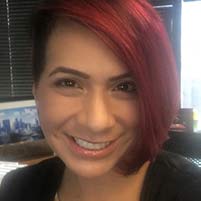
Dr. Kristina Lopez is the First Place Fellowship strategic coordinator and an assistant professor of social work at ASU who specializes in Latino children with autism spectrum disorders (ASD). She teaches advanced social work practice with children and adolescents and micro human behavior in the social environment.
Dr. Lopez’s research focuses on ecological and socio-cultural perspectives on developmental disabilities and early intervention; Latino children and families; culturally informed autism intervention; and racial and ethnic disparities in child and mother mental health. She is currently studying disparities in ASD diagnoses in the Southwest with the Southwest Autism Research and Resource Center (SARRC) and was the recipient of the 2018 International Society for Autism Research Conference Diversity Award. In addition to her academic and teaching duties, Professor Lopez is a surgery waiting room volunteer for the Phoenix Children’s Hospital. Dr. Lopez’s personal experience navigating service systems much of her life to access support for epilepsy informs her research and work with individuals and families affected by autism spectrum disorders.
Dr. Lopez completed her bachelor’s degree in psychology and master’s in general experimental psychology from California State University at Northridge. She also earned an MSW in interpersonal practice with children and youth, a master’s in psychology and a doctorate in social work and developmental psychology—all from the University of Michigan.
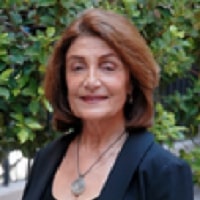
Dr. Emilia E. Martinez-Brawley is the John F. Roatch distinguished professor and former dean of the ASU School of Social Work. She teaches courses on social work practice and social policy and services.
A prolific academic writer, she has authored six books and more than 90 articles on social work education, rural communities and services, and diversity issues in service delivery. Her recent research and scholarly writings focus on global perspectives on immigration issues in the Southwest. Dr. Martinez-Brawley has been a visiting and guest faculty member in several countries and has had Fulbright awards to England, Australia, Israel, Spain, and the United Kingdom. She previously worked as a consultant for the United Nations European Centre for Social Welfare Research. Professor Martinez-Brawley has been a member of the executive committee of the International Association for Rural Research and Community Development since 2001.
Dr. Martinez-Brawley has a master of social work from Bryn Mawr College and a doctorate of education in curriculum theory from Temple University.
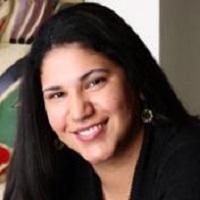
Dr. Felicia Mitchell is an assistant professor at ASU who studies the impact of social and environmental health factors on the health and well-being of Indigenous peoples and communities. She teaches social work practice and diversity and oppression in social work—a graduate course that examines social inequalities related to sexual orientation, race, gender, ethnicity, and disability.
Dr. Mitchell works to enhance representations of historically underrepresented groups in social work education and to eliminate oppressive educational practices in the field. She is a descendant of the Chickasaw Nation and the Chickasaw Freedmen, and she partners with American Indian organizations to address environmental issues and health concerns identified by community members.
Dr. Mitchell has an MSW from Washington University in St. Louis as well as a bachelor’s degree in social welfare and a doctorate in social welfare from the University of Kansas, where she also obtained a certificate in service learning.
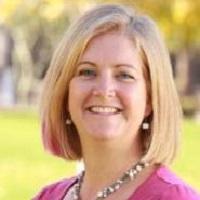
Dr. Dominique Roe-Sepowitz is an associate professor and the director of the Office of Sex Trafficking Intervention Research (STIR) at ASU. She teaches forensic social work, clinical trauma treatment, prostitution and sex trafficking in the U.S., and other courses in both the MSW and BSW programs.
Her areas of interest and expertise include trauma and the mental health treatment of incarcerated women and youth; post-traumatic stress disorder, self-harm and self-mutilation; and human sex trafficking, among others. Dr. Roe-Sepowitz is trained in EMDR and other trauma reduction techniques and has significant professional experience as a private practitioner and psychoeducational group leader working with sexually abused individuals. In addition to her academic appointment in the school of social work, she works in conjunction with city and social service agencies on project ROSE: Reaching Out to the Sexually Exploited. Dr. Roe-Sepowitz is the recipient of the Martin Luther King Jr. Servant Leadership Award from ASU and the College of Public Service and Community Solutions. She is also a founding member of the International Journal of Human Trafficking.
Dr. Roe-Sepowitz completed her bachelor’s degree in therapeutic recreation from Springfield College, her MSW from Arizona State University, and her doctorate in social work and direct practice from Florida State University.